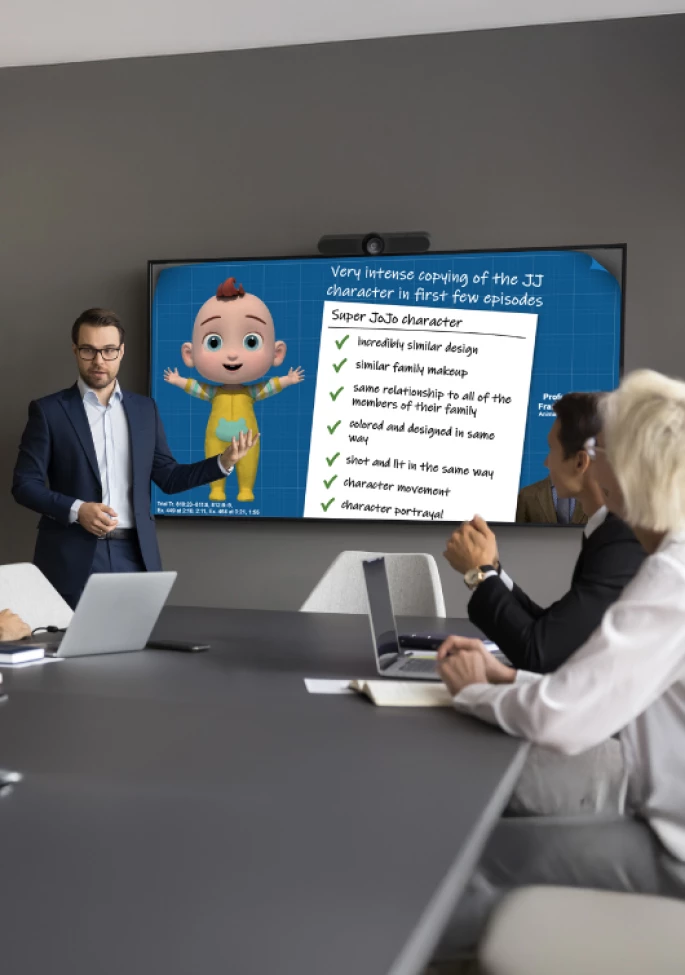With limited time and opportunity to question jurors during voir dire, attorneys are increasingly turning to jury consulting firms to conduct online research in hopes of learning more about the people who may be deciding their cases. Internet research of a jury panel can produce a wealth of information—information that jurors may not be forthcoming or candid about during voir dire, information that the judge may deem is outside the scope of permissible questioning, and seemingly irrelevant information that may have some correlation to a pro-defense or pro-plaintiff leaning (e.g., income, home ownership or voter registration). It can also reveal potential juror misconduct, like when one of our consultants discovered a juror “live tweeting” the jury selection process.
The following discussion examines the ethical considerations of conducting online research of potential jurors, based on years of experience conducting it as well as our continued review of this topic. It is important to understand these guidelines both in terms of conducting the searches and in handling the information you uncover.
Using Search Engines and Public Records Searches to Investigate Jurors
There are generally no ethical concerns with retrieving information about jurors from search engines such as Google or Bing. The various ethics opinions that discuss online jury research note that this information is publicly available and these searches, therefore, do not invade juror privacy. Even advanced public records searches or subscription services that aggregate public information—such as criminal records, property deeds, and voter registration—have been deemed acceptable search tools, so long as the information obtained does not violate consumer protection laws.
The gray area arises when it comes to viewing jurors’ social networking pages. Ethics committees have indicated that merely viewing the jurors’ personal profile, which is accessible to all website users, “is similar to obtaining information that is available in publicly accessible online or print media, or through a subscription research service, and that is plainly permitted.” (NYSBA Opinion 843 at 2) (emphasis added).
When Does Social Media Contact Constitute Communication?
The biggest concern with conducting online research of prospective jurors is the possibility of inadvertent communication with jurors upon viewing their social media profiles. The rules of professional conduct in every jurisdiction prohibit ex parte communications with prospective jurors and members of a sitting jury. Obviously, exchanging electronic messages with a prospective juror via social media is an impermissible communication, but when does merely viewing a juror’s webpage constitute “communication” under these rules? Ethical opinions on this issue have varied somewhat. Of the committees and bar associations that have delivered opinions on this matter, all are in agreement that “friending,” “linking,” “following,” or otherwise establishing any connection to the juror through a social media platform violates this rule. The San Diego County Bar Association was one of the first to weigh in, explaining in its 2011 formal opinion, “Because an attorney must make a decision to ‘friend’ a party, even if the friend request [is] nominally generated by Facebook and not the attorney, [the request] is at least an indirect communication and is therefore prohibitedby the rule against ex parte communications.”
In 2012, however, the ethics committee of the New York City Bar Association issued a formal opinion expanding this rule, noting that merely viewing a jurors’ social media profile may constitute a “communication” when the juror receives notification of the viewing. The opinion explains, “If an attorney views a juror’s social media page and the juror receives an automated message from the social media service that a potential contact has viewed her profile—even if the attorney has not requested the sending of that message or is entirely unaware of it—the attorney has arguably ‘communicated’ with the juror.” The opinion goes on to note that there is no mens rea component within the rule prohibiting ex parte communication and thus, an attorney may inadvertently and unknowingly violate the rule merely by viewing the juror’s profile. Ultimately, the opinion concludes that an automated message or notification from the social media service is a clear violation of the ethics rules when the attorney is aware that it has been sent as a result of their viewing the juror’s profile, but only “may” be a violation when the attorney is unaware of the notification.
However, ABA’s Standing Committee on Ethics and Professional Responsibility issued its own opinion in 2014 that differed from the New York City Bar’s position. According to the ABA Committee, a lawyer is not communicating with a juror when the social media service sends an automated notice to the juror indicating that the lawyer has viewed their page, even when the lawyer knows the notice will be sent. The ABA explains, “The lawyer is not communicating with the juror; the ESM [Electronic Social Media] service is communicating with the juror based on a technical feature of the ESM.” At this time, most states have not delivered their own opinions on the matter, and whether they will adopt the ABA or the New York City Bar’s position remains to be seen.
Of note, all the committees and associations that have commented on the issue noted that attorneys cannot evade the ethics rules simply by having a non-attorney with a name unrecognizable to the juror initiate communication, as this would violate rules prohibiting deception and misrepresentation, as well as rules that prohibit the attorney from violating rules through the act of a third party. Similarly, an attorney may not make misrepresentations on their own profile in order to gain access to a juror’s profile, for example, by claiming to be an alumnus of a school that they did not attend in order to view a juror’s personal profile that is accessible only to members of a certain alumni network.
Interestingly, not only did the New York City Bar deem online juror research ethical within certain parameters, the opinion suggested that not conducting such research may be an ethical violation, as “. . . standards of competence and diligence may require doing everything reasonably possible to learn about the jurors who will sit in judgment on a case.” Some states even have specific rules regarding juror searches, such as Missouri’s Rule 69.025 requiring counsel to search a prospective juror’s litigation history in the court’s database and raise nondisclosure issues prior to empaneling the juror. If an attorney fails to do so, they have waived the right to seek relief based upon that nondisclosure.
As a result of these varying procedures and interpretations of the ethics rules, it is imperative that attorneys and their consultants thoroughly understand the functionality, abilities, privacy settings, and limitations of each of the various social media services they use when researching jurors, and to be aware of any changes in the platforms’ settings or policies, to ensure that no communication is received by a juror or venire member.
Obligation to Report Juror Misconduct
Another aspect of online juror research worth mentioning is the obligation to report juror misconduct that is discovered through online investigations. During a jury selection in Illinois, we discovered that one of the prospective jurors was making several crude remarks about jury duty via Twitter, including making fun of other jurors’ hardship requests. Both the ABA and New York City Bar, along with other state bar associations including California, Oregon, and Pennsylvania, note that if a lawyer becomes aware via social media that a juror is tweeting, posting, or blogging about a case, or otherwise discussing the case via social media, the attorney’s ethical obligation is to advise the court regarding such activity.
However, determining whether a juror’s conduct is misconduct may be difficult in the realm of social media. Although a post or tweet on the subject of the trial, even if unanswered, can be considered a “conversation,” it may not always be obvious whether a particular post is “connected with” the trial, as a juror may be permitted to post a comment “about the fact [of] service on jury duty.” United States v. Fumo, 639 F. Supp. 2d 544, 555 (E.D. Pa. 2009) aff’d, 655 F.3d 288 (3d Cir. 2011). Generally speaking, discussion involving specific case facts, or an indication of any disposition toward anyone involved in the suit, must be reported promptly and judges have even determined that comments about non-case related observations (e.g., comments about other jurors) may constitute juror misconduct and may also warrant reporting to the Court. Indeed, in the Illinois trial mentioned previously, our consultant reported the juror’s tweets to our client, who then printed out screenshots of the juror’s comments and turned them over to the judge. Not only was this juror dismissed from the case, but also scolded by the judge and escorted in handcuffs to a holdover.
A Conservative Approach That Yields Results
Is it ethical to research jurors online during jury selection? Yes, so long as the lawyer and those conducting research on their behalf are sure to abide by the guidelines established on the matter in the trial jurisdiction. In the absence of such guidelines, the prudent course of action is to adopt the conservative approach voiced by the New York City Bar Association.
Our research professionals have been thoroughly trained on conducting juror research within the strictest ethical bounds, and they are intimately familiar with the functionality, privacy settings, and features of various social media platforms to ensure that we conduct ethical juror research online that yields valuable results.





